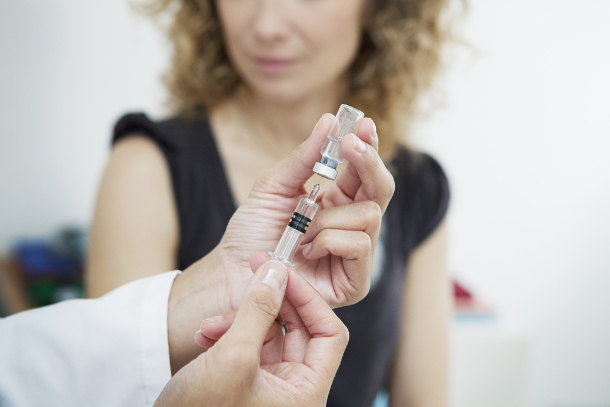June 5, 2021, was a good day for me. Adrenalin coursed through me as I walked to the Kerrisdale Community Centre for my first COVID-19 vaccine dose.
The inoculation process itself went by in a blur. Before I knew it, I was happily clutching my “I’m COVID-19 vaccinated” sticker and making my way out of the centre.
As I stepped outside, I was approached by a middle-aged woman who asked me which vaccine I was given inside. The moment I said Pfizer, her face lit up. She gave out a huge sigh of relief and rushed in, happily muttering, “I don’t have to reschedule again.”
I was stunned. For over a year, my family and friends back in India have been confined in their homes, sanitizing every package, grocery item and letter they received, waiting for their vaccine.
Despite taking precautions, many people in my extended family and friends’ families have tested positive for COVID-19. Not everyone made it back home safely.
When the vaccination drive was announced for the 45-plus age group in Mumbai this April, my family spent hours refreshing the government’s CoWIN app, waiting for an open vaccination slot for my parents. They didn’t get to choose — nor were they fixated on which vaccine they’d receive.
My parents have received two doses of Bharat Biotech’s Covaxin and my sisters have recently received their first doses of the AstraZeneca vaccine — Covishield.
They are the lucky ones.
India has recorded over 29 million confirmed COVID-19 cases, second in the world only to the U.S. However, while 43.9 per cent of Americans are now fully vaccinated, only 3.5 per cent of the Indian population has been vaccinated so far.
In a time like this, it is baffling to read about people across Canada missing their vaccine appointments or rescheduling to get the vaccine of their choice — often, like the woman I ran into when I got vaccinated, hoping for Pfizer over AstraZeneca or Moderna.
According to statistics sent to The Tyee from the Ministry of Health, almost 58,000 vaccine appointments were cancelled or rescheduled via the call centre option in British Columbia from June 6 to June 11, 2021.
While the reasons for these changes were not recorded — some callers could have been cancelling clinic shots after receiving the AstraZeneca vaccine at a pharmacy, for example — volunteers working at vaccination clinics have observed people turning back after learning which vaccine they would be receiving.
A.J., a Burnaby-based volunteer who preferred to go by his initials to maintain privacy, was on door duty at four different Vancouver Coastal Health vaccination clinic sites.
“I saw that everyone wants Pfizer,” A.J. told me. “In some cases, people heard they were getting Moderna and went back.”
Dr. Alexander Wong, an infectious disease physician and a clinical researcher with the Saskatchewan Health Authority, said that while Pfizer and Moderna, both mRNA vaccines, don’t yet have comparable clinical data, they are interchangeable in terms of their benefits and efficacy.
He believes the driving force behind vaccine shopping is the spread of misinformation and confusion in the absence of comparable clinical data and proper government messaging.
“The challenge is that a lot of the clinical and real-world data, especially from the U.K., around Delta variants, which is coming out right now, is specifically for Pfizer-BioNTech and AstraZeneca,” Wong said.
“We know about the risks of ITT or blood clots associated with AstraZeneca in comparison with the chances of mild myocarditis or heart inflammation caused by Pfizer-BioNTech,” he said. But since the same information isn’t specifically available for Moderna, some people may avoid it — which highlights the importance of proper public messaging.
“Public health officials probably just need to come right out and actually say that both vaccines are largely interchangeable from a health and efficacy standpoint, to help battle some of the perceptions,” Wong said.
Despite these public perceptions and preferences, Canada tops the world in terms of the percentage of people who have received their first dose of the vaccine. (Though just under 14 per cent of us have received both doses so far.)
In B.C., the Ministry of Health has administered over 4 million vaccine doses, and over 75 per cent of adults are now vaccinated with their first dose.
But as Canada moves closer to reaching herd immunity, we need to start paying attention to the COVID-19 crisis in countries like India, where people are worrying less about the small chance of a negative side effect from a vaccine — and more about when they will be able to get one at all.
My friend Karan Saxena recently wrote an article about Canada’s response to the Indian health-care crisis. He wrote about how wealth inequality between the Global North and the Global South has hindered nations like India from purchasing expensive vaccines that are easily available to countries like the U.S. and Canada, while highlighting the importance of waiving intellectual property in order to increase vaccine accessibility in India and countries like it.
Dr. Srinivas Murthy, associate professor at UBC’s faculty of medicine and a consultant for the World Health Organization, echoed the sentiments Saxena expressed. While there are many reasons for the disparity in vaccination rates between Canada and India, he said, most of these reasons boil down to who is able to pay for vaccine doses, and who holds the power in the vaccine allocation process.
“Canada has these vaccines,” Murthy said. “People are applying a lot of privilege and trying to choose between Pfizer and Moderna and AstraZeneca and so on, while the rest of the world doesn't have that choice.”
The WHO initiative Covax is aimed at providing equitable access to COVID-19 vaccines to nations across the world. But as this initiative relies on donations — and as there is still much higher demand than supply for vaccines — it is imperfect at best.
“That is not the solution that most people in the south and most activists are looking for. What they’re looking for is justice in a way and the ability to make these vaccines on their own,” Murthy said.
Instead, he said, facilities in India and countries like it need access to the intellectual property to produce the vaccine, alongside the technology, knowledge, and supply chain materials required to make their own doses.
So far, the global race against COVID-19 has resembled a flag-staking nationalistic race. There was a race between nations to develop the first vaccine, followed by a race to produce the best one, followed by a race to vaccinate everyone in each individual nation.
But public health experts point out that this pandemic may best be considered a relay — where every single affected nation should be working together to eliminate the virus.
“If there’s a large region with a large amount of transmission, then there are going to be variants that will emerge and can affect the citizens of a 100-per-cent-vaccinated nation,” Murthy points out.
“The best way of allocating vaccines that are scarce is to pool resources and increase supply before distributing it equitably around the world to people who need it the most.” ![]()
Read more: Coronavirus
















Tyee Commenting Guidelines
Comments that violate guidelines risk being deleted, and violations may result in a temporary or permanent user ban. Maintain the spirit of good conversation to stay in the discussion.
*Please note The Tyee is not a forum for spreading misinformation about COVID-19, denying its existence or minimizing its risk to public health.
Do:
Do not: